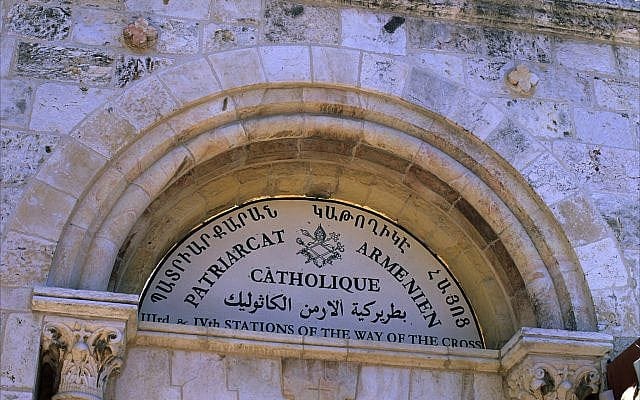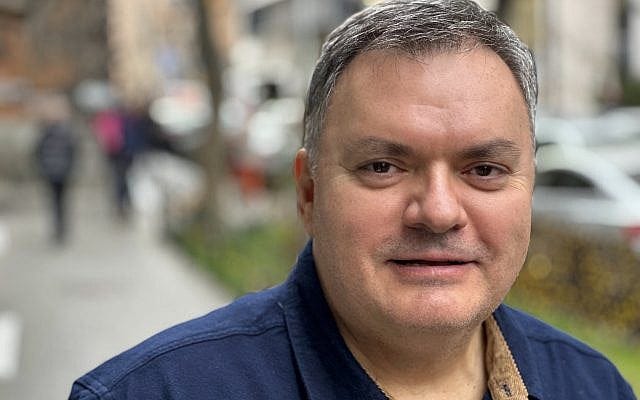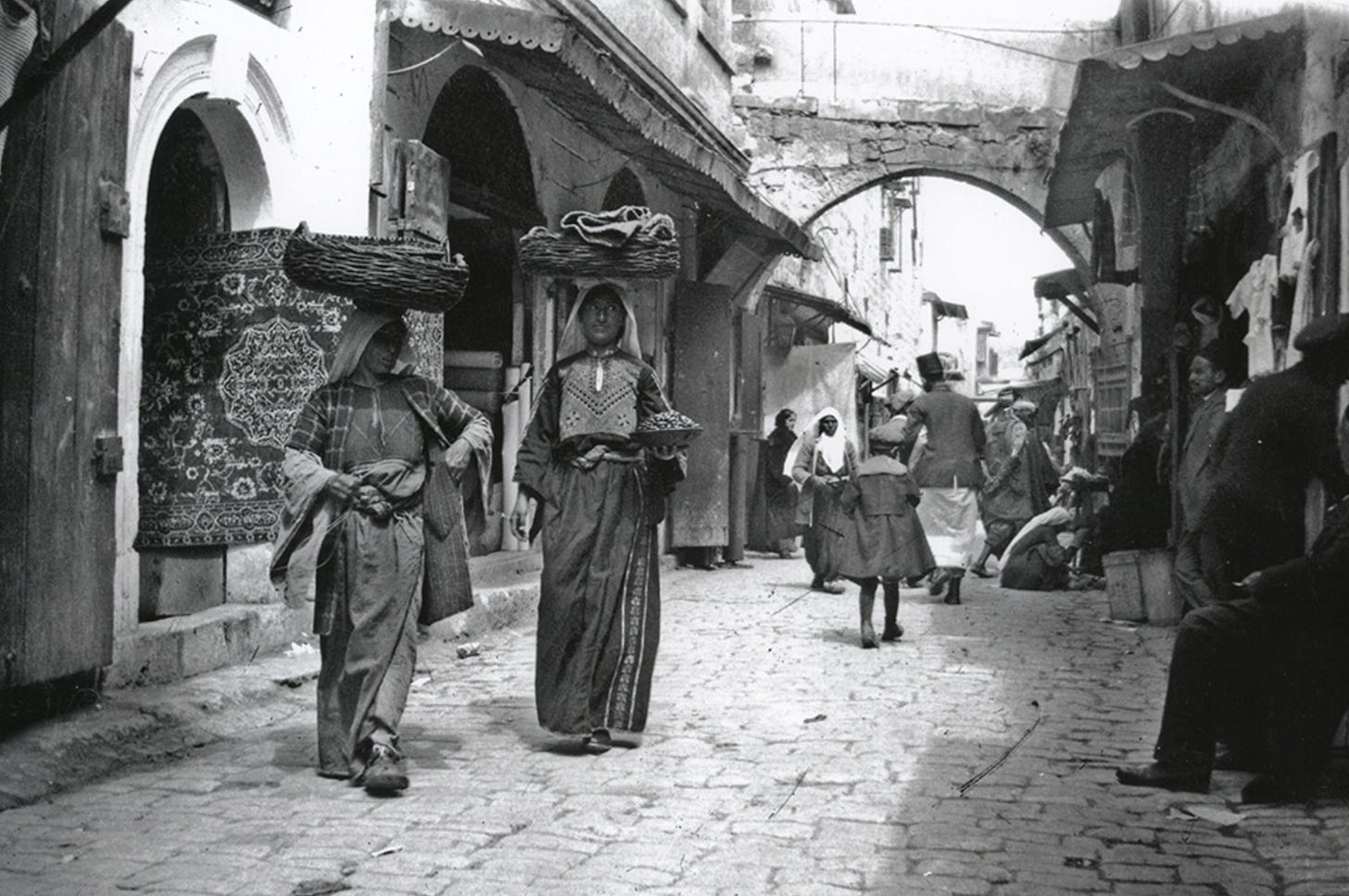Jerusalem Honors Armenian Photographer, Bridging Shared Histories
A new square named for Elia Kahvedjian signals hope for Jewish-Armenian renewal

By Larry Luxner
It didn’t make international headlines, but this week the capital of a nation whose people were devastated by genocide during World War II memorialized victims of a nation ravaged by genocide during World War I. On July 7, the Municipality of Jerusalem renamed a small square adjacent to Damascus Gate in honor of Elia Kahvedjian, an Armenian photographer who died in 1999 and whose entire family was murdered during the 1915 genocide committed by the Ottoman Empire.
While it wasn’t exactly an official act — that’ll come later — it does make Jerusalem the third place in Israel (after Haifa and the Tel Aviv suburb of Petah Tikva) to designate public spaces in memory of the slaughter of over a million ethnic Armenians. That’s significant, because the State of Israel itself has refused to take that step (as the United States and many other countries have done) despite the painful history shared by the Jewish and Armenian peoples.
Dear readers of AQL: Please consider that we cannot develop without financial support. It costs barely over $1/week to do the right thing. Also, if you agree with the thesis presented here, consider sharing widely. Only thus can we influence events.
Kahvedjian’s family had been campaigning for this moment for more than seven years, and finally the municipality agreed. “They used the Hebrew words shoah armenit, a term usually reserved for the Holocaust. That’s very strong wording,” Arman Akopian, Armenia’s ambassador to Israel, told us in an interview.
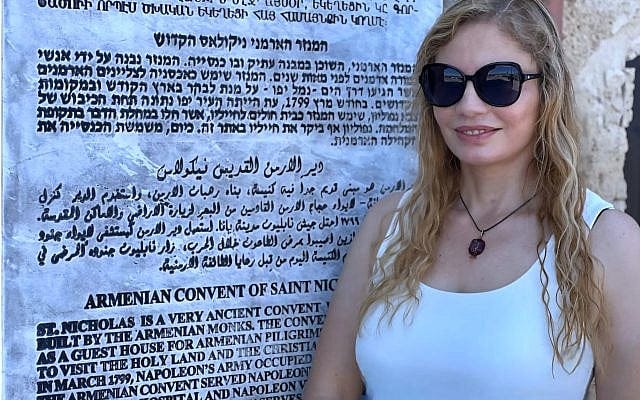
In 2025, for the first time, the Jewish holiday of Yom HaShoah (marking the Holocaust) fell on the same day, April 24, as Armenian Genocide Remembrance Day. Yet in the wake of the ongoing Gaza war, Turkish President Recep Tayyip Erdoğan has been more hostile than ever to Israel, perhaps leading the Netanyahu government to be less cautious than in the past about offending Ankara.
“I have a theory that maybe this is a kind of revenge against Turkey. Relations between Israelis and Turks are very tense right now,” said Marina Kozliner, an Israeli of Armenian origin who’s long acted as a spokeswoman for the community. “There’s also been a spike in anti-Christian incidents by Orthodox Jews in Jerusalem, but especially in the Armenian Quarter. So maybe this is also sort of a compensation to show that Israelis are not anti-Armenian.”
Three communities, one common heritage
Kozliner, 50, was born in Yerevan but has lived in Israel since 1995. An engineer who works for Intel in Kiryat Gat, she lives in the Tel Aviv area and is the product of a Jewish father and an ethnic Armenian mother. She’s one of an estimated 10,000 Armenians living in Israel — a community that consists of three distinct groups.
The first group, numbering around 5,000, are descendants of the 1915 Armenian genocide who, like Kahvedjian, escaped the bloodshed and arrived in the Holy Land more than a century ago, often via Lebanon or Syria. They are exclusively Christian and live mainly in Haifa, Nazareth and Jaffa.
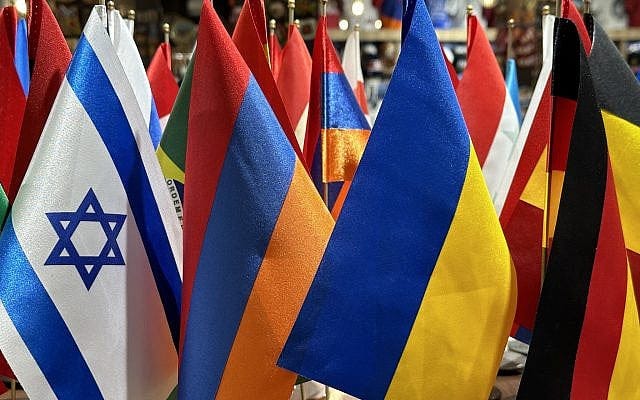
The second group, of around 2,000 people, are Christians in Jerusalem’s Armenian Quarter whose ties to the Old City date back more than a thousand years. And the third group of 2,000 to 3,000 are those like Kozliner who are descended from (mostly) mixed Jewish-Christian families that left after the Soviet collapse in 1991 led to a series of bloody wars between the newly independent republics of mostly Christian Armenia and predominantly Muslim Azerbaijan.
The story of Kahvedjian (see his photography here) is particularly painful. Born in Urfa, in what is now Turkey, he survived the tragic events of 1915 and at the age of 5 was placed in an orphanage in Nazareth. At 14 he began his photography career, taking ownership of Jerusalem’s Hanania Studio and rebranding it as Elia Photo-Service. He served as a military photographer for the British Army during Israel’s 1948 War of Independence and spent decades documenting the city’s social and cultural life.
Today, Kahvedjian’s descendants still run the shop in Jerusalem’s Christian Quarter, as well as a small museum and archive that tells his life story.
Israeli solidarity an example for Armenians?
Sadly, as Kozliner said, a recent flurry of incidents by ultra-Orthodox Jews against Christians in Jerusalem’s Old City—including verbal abuse and spitting on priests—has soured relations between the two countries.
“These Jewish extremists attack everything non-Jewish,” she explained. “These people do not represent Israeli attitudes towards Armenians at all. Yes, it’s true some people in Armenia are against Israel, but the idea that Armenians are antisemitic is pure Azerbaijani propaganda.”
Kozliner, whose parents still live in Yerevan, has thousands of followers on Facebook, Instagram and TikTok. A community activist who often organizes rallies and protests, she said about 100 people showed up at this year’s April 24 genocide memorial commemoration in Haifa.
“Most of my followers are Armenians,” said Kozliner, who’s fluent in Armenian, Russian, English and Hebrew. “They get their news about events in Israel from Armenian news sources, and they don’t always know what’s going on. So my updates give them a real picture of what’s happening here.”
For example, Kozliner gave her readers a running account of the recent Israel-Iran War and the frightening experience of running day and night to bomb shelters; on the war’s third day, an Iranian ballistic missile destroyed an apartment building only a few blocks from her own residence, killing 12 people.
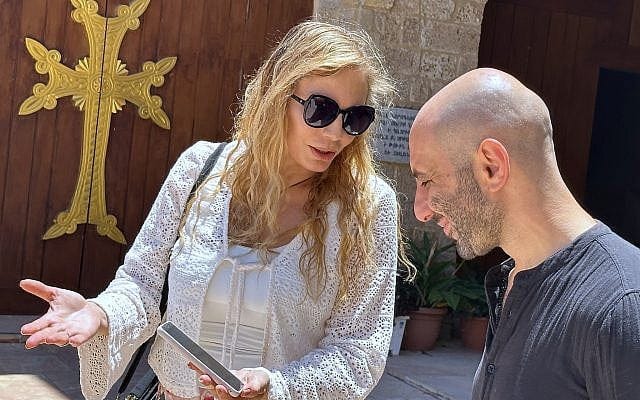
“Armenians often ask me what’s the secret of the Jewish state and its success. I tell them to look at how Israelis take care of each other—especially during this terrible situation,” she said, adding that in the aftermath of Tehran’s response to Israel’s pre-emptive strike on the Iranian nuclear weapons program, “I received hundreds of messages from Armenians around the world asking about us. It was very touching.”
Next priority: An Israeli embassy in Yerevan
Despite similarities in the past and present of the jewish and Armenian people, there are tensions related to geopolitics. Kozliner noted that the country of her birth continues to enjoy warm ties with Tehran; after all, Iran is home to as many as half a million people of Armenian origin. “You cannot blame Armenia for its relationship with Iran, which was the only country that helped them during their war with Azerbaijan. Not even Russia helped.”
Conversely, Israel engages in billions of dollars of trade with Azerbaijan, including the supply of drones and missiles that in 2020 helped it wrest control of the disputed territory of Nagorno-Karabakh. The 44-day war led to charges of ethnic cleansing and the collapse of the so-called Republic of Artsakh, as well as anti-government protests in Armenia itself.
There are also tensions over a contested land deal in the Armenian Quarter in the Old City of Jerusalem.
In March 2023, Azerbaijan inaugurated an embassy in Tel Aviv, even though the two countries had enjoyed diplomatic relations for more than 30 years. Israel has maintained an embassy in Baku for years, and Jewish life in the predominantly Muslim oil-producing republic is thriving. Yet relations with Armenia remain stagnant.
“My dream is to improve relations between Jews and Armenians,” said Kozliner. “I think the Armenians have so much to learn from Jewish people. Both of us have suffered from terrible events in the last century, yet unfortunately the Armenian genocide has been forgotten.”
As rivals Armenia and Azerbaijan slowly work toward a potential agreement that will end the perennial state of war between the two countries, Akopian—who speaks fluent Hebrew — hopes to see a dramatic improvement in ties with the Jewish state. He’d also like to see, at last, an official Israeli recognition of the Armenian genocide with no strings attached.
“We are waiting for the opening of an Israeli embassy in Armenia because, without that, it’s very difficult to see any major progress, especially since Israel recently opened embassies in two other post-Soviet republics, Moldova and Estonia,” said Akopian. “I want to believe that Armenia will be third on that list.”
He added: “We know what happened between Israel and Azerbaijan, and we’re not enthusiastic about that. The Azeris say they won the war thanks to the military support they got from Israel, and Israel was the only country that kept supplying Azerbaijan with arms during the war itself. But we’re willing to turn the page. We still believe we can move forward.”
Larry Luxner is a veteran American journalist whose career spans Puerto Rico, the Balkans, the Middle East and the South Caucasus.



